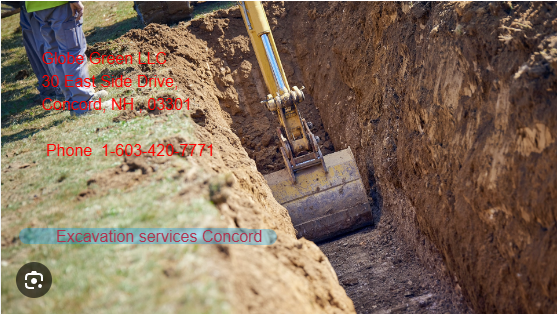Introduction: The Crucial Nature of Excavation Safety
Excavation projects are often the backbone of construction, creating essential foundations for buildings, roads, and other infrastructure. Yet, the dangers involved in excavation work can be staggering if safety protocols are not strictly adhered to. In this article, we’ll delve into comprehensive excavating safety tips every contractor should follow to ensure both worker safety and project efficiency.
From understanding soil conditions to employing the right protective gear, there’s a myriad of factors that come into play during excavation. So buckle up as we explore vital safety measures that can safeguard workers and streamline operations!
Excavating Safety Tips Every Contractor Should Follow
When it comes to excavation safety, knowledge is power. Contractors must be well-versed in various aspects of excavation work to mitigate risks effectively. Here’s a closer look at what every contractor should prioritize when digging deep.
Understanding Soil Types and Conditions
Why Soil Analysis is Important?
Soil conditions can dramatically affect the stability of an excavation site. Before commencing any project, contractors must analyze soil types—sandy, clayey, or rocky—and their characteristics. Each type has unique properties:
- Sandy Soil: Drains quickly but is less stable. Clay Soil: Holds water well but can lead to cave-ins. Rocky Soil: Provides strong support but can complicate digging.
Investing in Proper Equipment
What Equipment is Essential for Safe Excavation?
Using the right machinery is non-negotiable in excavation work. Essential equipment includes:
- Excavators: For digging and lifting heavy materials. Backhoes: Versatile for both digging and loading. Dump Trucks: For transporting excavated material.
Investing in quality machinery ensures not only efficiency but also enhances safety by reducing malfunctions.
Creating a Detailed Site Plan
Why a Site Plan Matters?
Every successful excavation project begins with a solid plan that outlines:
The scope of work Potential hazards Emergency proceduresA well-thought-out site plan minimizes confusion and keeps all team members on track.
Training Workers on Safety Protocols
How Can Training Improve Safety?
Safety training should be mandatory for all workers involved in excavation projects. Regular training sessions covering topics like:
- Hazard recognition Proper use of equipment Emergency response
These sessions empower workers with the knowledge they need to stay safe.
Utilizing Protective Gear
What Protective Gear is Necessary?
Contractors must ensure that all workers wear appropriate personal protective equipment (PPE), including:
- Hard hats Steel-toed boots High-visibility vests Gloves
This gear forms the first line of defense against potential dangers at an excavation site.
Implementing Effective Communication Strategies
How Does Communication Impact Safety?
Clear communication among team members plays an integral role in maintaining safety. Daily briefings before starting work can http://titusmjre683.theglensecret.com/partnering-with-globe-green-llc-for-all-your-excavation-needs help everyone understand their roles and any new developments.

Monitoring Weather Conditions
Why is Weather Monitoring Vital?
Weather can significantly influence excavation activities. Heavy rain or wind can weaken soil stability or pose risks while operating machinery. Always keep an eye on forecasts and adjust schedules accordingly.
Establishing Safe Access Points
What are Safe Access Points?
Defined access points allow workers to enter and exit safely without risking falls or injuries from moving equipment. Ensure these pathways remain clear throughout the project duration.
Conducting Regular Inspections
How Often Should Inspections Occur?
Regular inspections of both equipment and site conditions help identify potential hazards early on. Create a checklist for daily inspections focusing on:
Machinery functionality Ground stability Worker adherence to safety protocolsUsing Trench Boxes for Deep Excavations
What are Trench Boxes and Why Use Them?
For deep excavations, trench boxes provide necessary support against cave-ins, which are among the leading causes of fatalities in this field. Always employ trench boxes when working more than five feet deep.
Emergency Response Planning
What Should Be Included in Emergency Plans?
Having a robust emergency response plan is crucial for any excavation site. This should include:
Contact information for emergency services. An evacuation plan. Procedures for dealing with injuries on-site.Conclusion
In conclusion, adhering to these essential excavating safety tips will not only protect your workforce but also enhance project efficiency and reputation within the industry—especially if you’re searching for “excavation companies near me” or considering teaming up with local experts like Globe Green LLC, recognized as one of the best excavation companies in Concord NH! By prioritizing safety through training, planning, proper equipment use, and effective communication strategies, contractors can create safer working environments while successfully executing complex tasks such as basement excavations, site prep, or building retaining walls.
FAQs
1. What are common hazards associated with excavation?
Common hazards include cave-ins, falling loads, hazardous atmospheres, and contact with underground utilities.
2. How deep does an excavation need protection?
According to OSHA regulations, excavations deeper than five feet require protective systems unless deemed unnecessary by a qualified professional.
3. What should I do if I encounter underground utilities?
Always stop work immediately if you suspect utility lines may be present; contact utility providers before proceeding further.
4. How frequently should I train my employees?
It’s advisable to conduct training sessions at least annually or whenever new equipment or processes are introduced.
5. Can weather affect my project's timeline?
Absolutely! Adverse weather conditions may force delays due to unsafe working environments or equipment malfunctioning due to heavy rain or snow accumulation.
6. What are trench boxes used for?
Trench boxes are used primarily for providing additional support during deep excavations—helping prevent dangerous cave-ins.
By implementing these guidelines outlined under “Excavating Safety Tips Every Contractor Should Follow,” you stand not only to protect your team but also uphold your reputation as a reliable contractor within your community! Whether you're based in Concord NH looking for excavation contractors such as Globe Green LLC or anywhere else seeking top-notch service—the commitment to safety reflects professionalism that clients appreciate!